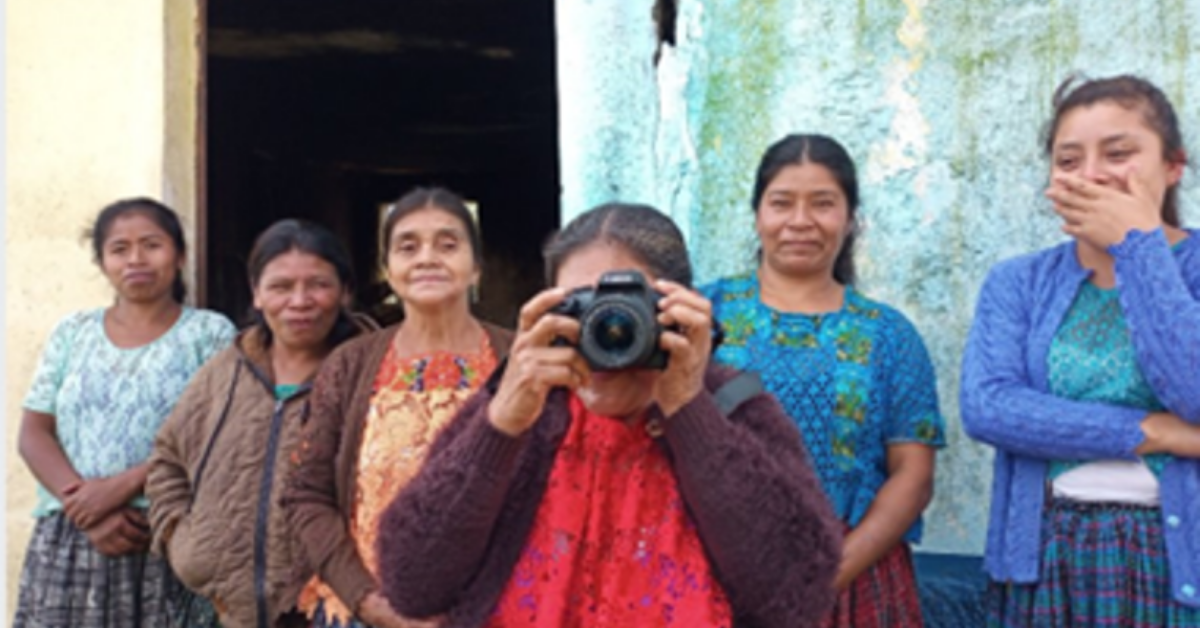
The Transformative Power of Digital Storytelling
Canada SOS: Students Offering Support
As a middle school student in rural Guatemala, Maria Morales had a passion and aptitude for learning. But despite her promising grades, Maria’s father believed her education was a waste of time. Like many people living in rural Mayan communities, he believed school was a privilege wasted on women. Instead, he advised her to marry young and focus her learning on domestic duties.
But Maria persisted – walking more than two hours to get to school and waking up at 5am to complete her homework and chores. Soon she received an opportunity that changed her life. Maria became a participant in Girls Groundswell – the first FIT-funded innovation implemented by Canada SOS: Students Offering Support that empowers Mayan adolescents to become mentors for grade 4-6 students. Maria began as a student participant, then became a mentor, and eventually received a scholarship through SOS to study medicine.
“My father came to realize that my commitment and willingness to learn would take me far in life and he became more supportive of my dreams. Girls Groundswell opened so many doors for me, I knew I had to give back.”
When SOS returned to her region to implement another FIT-funded innovation for women’s empowerment, Maria was eager sign on and help other women in her community.

This second innovation - ‘Lights+Camera+Action for Equality’ – involved Canada SOS along with their local partners Semillas de Innovacion y Desarrolo Sostenable (SIDS) and looked at cultivating the leadership of young Mayan women through production of digital stories (podcasts, videos, and photo essays) that showcase locally-identified, actionable insights related to achieving the Sustainable Development Goals (SDGs).
Maria supported the innovation testing as a facilitator, while continuing her studies in medicine.
“As a facilitator, my goal was to empower women and girls with skills and information. I hope they know how incredible (women) are and that we can do great things and achieve what we want. I want to help women in my community increase their opportunities and knowledge.”
As part of the innovation, women participated in workshops on essential topics such as human rights, gender equality, leadership, and civic participation. They were also trained to create digital artifacts on topics that they felt passionately about. This allowed each subgroup to express their ideas and perspectives in a medium that suited them best, whether it was a podcast, video, or photo essay. In addition, a variety of campaigns, simulations, and events were planned and hosted by the participants themselves. These events created a platform for women, youth, and other community members to connect with the content created by participants.
The recognition and presentation of artifacts by women leaders indicate a shift in behavior towards embracing women's leadership. Additionally, the approach emphasizes the importance of the local Mayan language, in-kind donations, allocating funds to support women's leadership, and having women in program coordination positions, all contributing to empowering women and achieving greater gender equality.
By the end of the innovation, 654 (490 women and 164 men) community members directly participated in the activities including workshops.
Indigenous women’s perception of a culture of gender equality in their communities increased from 73% at baseline to 97% by endline, while 91% of women stated they are ‘more likely’ to take on leadership roles in their community as a result of their participation in the project.
In total, participants created 96 formal digital artifacts over the testing period. These featured essential topics related to gender equality, civic participation, leadership, and human rights and reached over 8,069 people through social media, television and radio. Several women participants indicated that they intend to participate and take on leadership roles in civic committees that tackle key issues like water and health.
The success of this testing innovation is a testament to the power of community engagement. The participants expressed that the workshops and political campaign simulation enhanced their teamwork skills, provided them with a better understanding of how women can actively engage in their communities, increased their confidence in sharing their ideas and opinions, and highlighted the significance of doing so. The program coordinators and facilitators observed a marked improvement in the participants' motivation, self-assurance, civic engagement, and involvement during the final phase of the testing innovation.
“Before, I considered that most women could not be a leader. Thanks to the workshops I understood that Mayan women can also be leaders, but for this the support and trust of the members of the community is necessary,” said innovation participant Marta Esperanza.
Following the innovation testing, the equipment used during the project was donated to the communities so they can continue to produce digital artifacts. SIDS and Canada SOS are creating a sustainability plan in collaboration with community members to ensure the long-term success of the project beyond the initial funding period. The plan will include identifying potential funding sources, creating a roadmap for equipment maintenance and replacement, and providing ongoing support.


